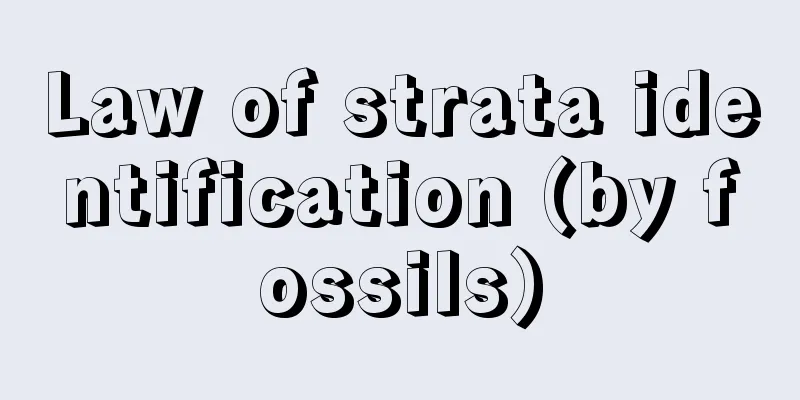Yukio Ozaki

|
Politician. Born November 20, 1859 (Ansei 6) in Kanagawa Prefecture, according to his family register. His pen name was Gakudo. He dropped out of Keio University and the Engineering Department. In 1879 (Meiji 12), he became editor-in-chief of the Niigata Shimbun newspaper on the recommendation of Fukuzawa Yukichi. He then became a clerk at the Statistical Board in 1881, but retired during the Meiji 14th year political upheaval (1881). The following year, in 1882, he became an editorial writer for the Yubin Hochi Shimbun newspaper, and participated in the formation of the Constitutional Reform Party. In 1887, he promoted the Daido Unity Movement under Goto Shojiro, but was ordered to leave Tokyo due to the Security Ordinance, and traveled abroad to the United States and the United Kingdom. In 1890, he ran in the first general election from Mie Prefecture, and was elected. From then on, he was elected 25 times in a row until the general election of 1952 (Showa 27), and served as a member of parliament for 63 years. Around the time of the Sino-Japanese War, Ozaki was at the forefront of the hard-line foreign policy faction, attacking the government. He was appointed counselor to the Ministry of Foreign Affairs in the second Matsukata Masayoshi cabinet and minister of education in the first Okuma Shigenobu cabinet, but resigned (1898) over the issue of the so-called "Republican Speech," which attacked clan-based politics. In 1900 (Meiji 33), at the invitation of Ito Hirobumi, he left the Constitutional Party and participated in the founding of the Rikken Seiyukai party, serving as a general affairs committee member. In 1903, he left the party in opposition to the compromise with Ito's Katsura Taro cabinet, and after joining a small faction, he rejoined the party in 1909. He also became mayor of Tokyo in 1903, a position he held until 1912. When the second Saionji Kinmochi Cabinet fell in December 1912, he led the first movement to protect constitutional government together with the Kuomintang's Inukai Tsuyoshi, and was called the "god of constitutional government." When the Seiyukai compromised with the first Yamamoto Gonbei Cabinet, he left the party again, and became Minister of Justice in the second Okuma Cabinet in 1914. In 1916, he participated in the founding of the Kenseikai, and became its chief general affairs officer. After World War I, he advocated disarmament from the standpoint of international cooperation. He also led the movement for universal suffrage, but was expelled from the Kenseikai after criticizing the Kenseikai's universal suffrage movement as incomplete, and joined the Kakushin Club. He then participated in the Second Constitutional Government Protection Movement, and took a stance against the enactment of the Peace Preservation Law. He did not join the Seiyukai coalition, and while he gradually became isolated within the Diet, in 1928 (Showa 3), he criticized the Tanaka Giichi cabinet's ideological oppression and submitted the Three Major National Crisis Resolutions, and in 1931, he called for the complete abolition of the Peace Preservation Law and disarmament, clearly expressing his anti-militarist and anti-fascist stance, which he maintained even during the war. In particular, in the 1942 Imperial Rule Assistance Election, he sent an open letter of inquiry to Prime Minister Tojo Hideki criticizing the recommendation system, and ran unrecommended but was elected. He was also charged with lèse majesté and found guilty for comments he made during a speech in support of his longtime comrade Daikichirō Tagawa, but was found not guilty by the Supreme Court in 1944. After World War II, he was brought into the limelight for his wartime stance, and spoke out as an elder statesman in the Diet. He died on October 6, 1954. [Kenzo Kitagawa] "Ozaki Yukio" by Isa Hideo (1960, Yoshikawa Kobunkan)" ▽ "The Complete Works of Ozaki Gakudo, 12 volumes (1955-1956, Koronsha)" ▽ "The Life of Gakudo Ozaki Yukio" by Nishikawa Keizo (2009, Ronsosha)" [Reference items] | | |Kenseikai| |©Shogakukan Library "> Yukio Ozaki Source: Shogakukan Encyclopedia Nipponica About Encyclopedia Nipponica Information | Legend |
|
政治家。戸籍上は安政(あんせい)6年(1859)11月20日神奈川県生まれ。号は咢堂(がくどう)。慶応義塾、工学寮を中退。1879年(明治12)福沢諭吉の推薦で『新潟新聞』主筆となる。ついで1881年統計院書記官となるが、明治十四年の政変(1881)で退官。翌1882年『郵便報知新聞』の論説記者となり、立憲改進党の結成に参加した。1887年、後藤象二郎(ごとうしょうじろう)のもとで大同団結運動を推進したが、保安条例により東京から退去を命じられ、アメリカ、イギリスに外遊。1890年第1回総選挙に三重県から立候補して当選。以後1952年(昭和27)の総選挙まで25回連続当選し、63年に及ぶ議員生活を送った。日清(にっしん)戦争前後の尾崎は対外硬派の先頭にたって政府を攻撃、第二次松方正義(まつかたまさよし)内閣では外務省参事官、第一次大隈重信(おおくましげのぶ)内閣では文相に就任したが、藩閥政治を攻撃したいわゆる「共和演説」問題で辞職(1898)。1900年(明治33)伊藤博文(いとうひろぶみ)の誘いに応じて憲政本党を脱党して立憲政友会の創立に参画、総務委員を務めた。1903年伊藤の桂太郎(かつらたろう)内閣との妥協に反対して脱党、小会派を経て1909年に復党した。また1903年東京市長となり1912年まで在職。1912年(大正1)12月第二次西園寺公望(さいおんじきんもち)内閣が倒れると、国民党の犬養毅(いぬかいつよし)とともに第一次憲政擁護運動の先頭にたって活躍、「憲政の神様」と称された。政友会が第一次山本権兵衛(やまもとごんべえ)内閣と妥協するとふたたび脱党、1914年第二次大隈内閣の法相に就任。1916年憲政会の創立に参画、筆頭総務となった。 第一次世界大戦後には国際協調主義の立場から軍縮論を提唱。また普選運動の先頭にたち、憲政会の普選運動を不徹底と批判したために憲政会から除名され、革新倶楽部(くらぶ)に参加。その後第二次憲政擁護運動に参加、治安維持法制定には反対の立場をとった。政友会との合同には参加せず、議会内ではしだいに孤立するなかで、1928年(昭和3)には田中義一(たなかぎいち)内閣の思想弾圧を批判して三大国難決議案を提出、1931年には治安維持法の全廃と軍縮を主張するなど、反軍国主義、反ファシズムの立場を明確にし、戦時中もその立場を貫いた。とくに1942年の翼賛選挙には推薦制を批判した公開質問状を東条英機(とうじょうひでき)首相に送付、自らは非推薦で立候補して当選。また長年の同志田川大吉郎の応援演説での発言を理由に不敬罪で起訴され有罪判決を受けるが、1944年の大審院では無罪となった。第二次世界大戦後は、戦時中の姿勢ゆえに時代の脚光を浴び、国会では長老的存在として発言した。昭和29年10月6日死去。 [北河賢三] 『伊佐秀雄著『尾崎行雄』(1960・吉川弘文館)』▽『『尾崎咢堂全集』全12巻(1955~1956・公論社)』▽『西川圭三著『咢堂・尾崎行雄の生涯』(2009・論創社)』 [参照項目] | | | |©小学館ライブラリー"> 尾崎行雄 出典 小学館 日本大百科全書(ニッポニカ)日本大百科全書(ニッポニカ)について 情報 | 凡例 |
Recommend
Armadillo lizard - Armadillo lizard
A lizard of the family Armadillidae in the order ...
Cardiac beriberi
A slang term for beriberi symptoms that appear in ...
The Constitution of the Athenians
In addition to these, he had written other works ...
Klasse für sich
…If a class is aware that it has a mission as a c...
Head man - Tounin
〘noun〙① A person who represents and commands a gro...
Upzail - Upzail
…Mountain climbing term. Also called abseiling or...
Hokkien - Fukkengo
A group of Chinese dialects centered in Fujian Pro...
Egyptian Art
The ancient Egyptian kingdom was established on t...
Forest - Mori
One of the surnames. [Additional information] Peop...
Great Britain - Great Britain
A British merchant ship that was the first ocean-g...
Ladyboy
...Half of the total area is forest. The majority...
Lake Walsini - Walsini
...The area is 114 km2, the depth is 114 m, and t...
Deck
…The word is derived from the French nappe (table...
King Oraniyan - Oraniyanou
...It is one of the kingdoms founded by the Yorub...
Chronicles - Kinotokibumi
Year of death: July 996 Year of birth: Unknown. A ...









